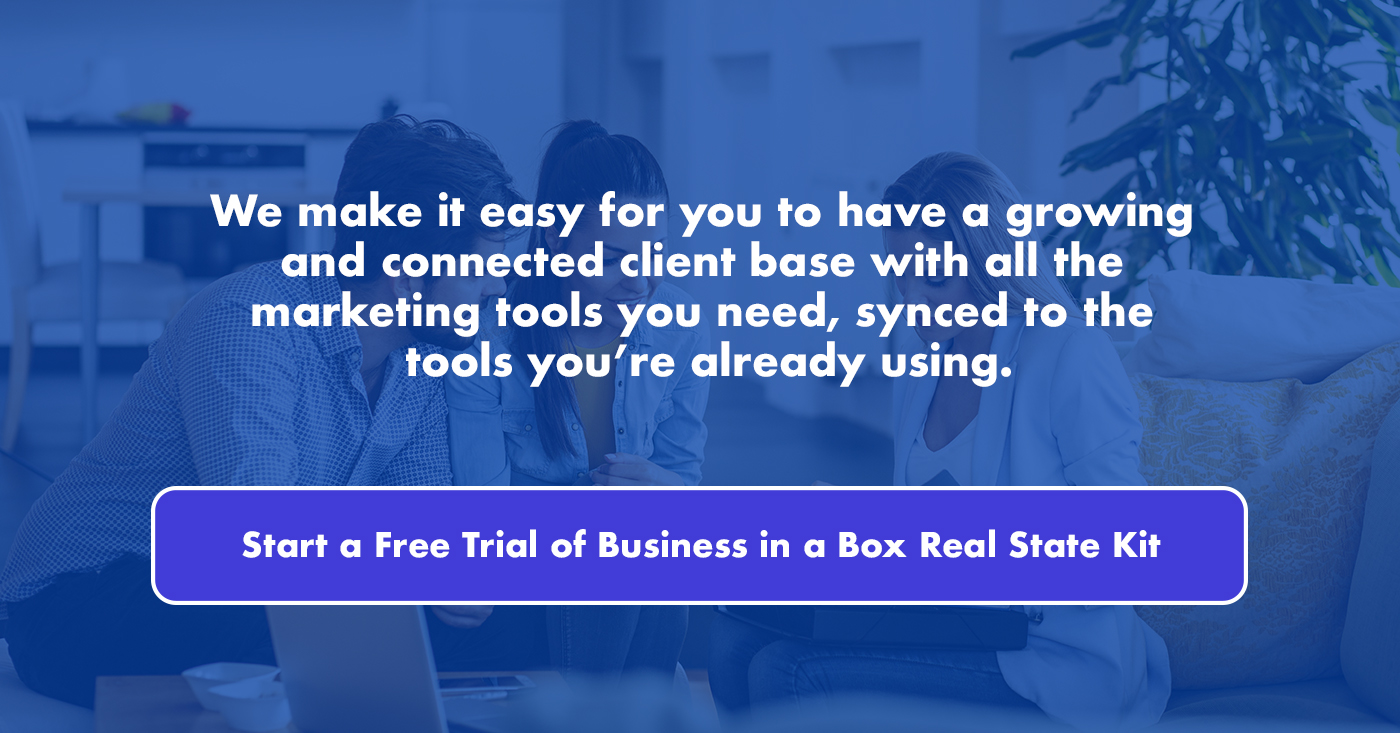
Let me guess.
You already have a real estate website… the one that your real estate brokerage provided you with.
The real question is: Why isn’t your real estate website generating any leads?
You’ve already decked out your website with your headshot, contact form, and previous sales. But you don’t have any leads to show for it.
Let’s change that! We’ll walk you through the proven steps to create a real estate website that sells:
1. Identify your real estate niche and target audience
I’m sure I don’t have to tell you how competitive the real estate industry is. According to the U.S. Bureau of Labor Statistics, the number of real estate brokers and sales agents is growing faster than the average occupation, projected to grow 7% between 2018 and 2028.
Aggressive growth means more competition for your business, especially online, where more and more buyers and sellers are going when they decide to buy and sell their homes.
To stand out in a competitive market, you need to do something that might feel counterintuitive; you need to narrow your focus and find your niche. I know, I know — as an agent, you’ve been trained to say yes to everything. But if you’re serious about creating a website that sells, you must stand out.
Standing out means crafting a unique message that resonates with the people you want to work with. Take some time to answer these key questions:
- Who is your ideal customer? (Age, spending power, interests, family status?)
- Where does she want to buy/sell real estate?
- Why does she want to buy/sell?
- What things are most important to her in the home buying or selling process?
- How can you help your client better than your competition?
Once you have this information solidified, build your website off of this strong foundation.
Do you need a top-notch Real State Business Plan? Get it Here
2. Choose your website domain name
Your domain name is probably the most important part of your website. After all, the domain name is what users will type into the search bar to visit your website.
A good real estate domain name is memorable. You also want something concise, straightforward, and professional. If you have a common name and the domain is taken, get creative with verbs, adjectives, and specifics like your location.
Something like listwithchris.com or northernmichiganproperties.com will do the trick. Make sure your domain name fits in with the niche and audience you identified in step one. Also, don’t forget to do a quick search on major social media channels like Facebook, Instagram, and Twitter to see if you can create social media accounts under the same name.
You can see if your desired domain name is available and get started with a domain here.
3. Get started with a website builder
Ready for some good news? The hard part of building your website is over!
Yes, I’m feeling your skepticism through the screen. But real estate software has gotten a lot better in the last decade, and building a website isn’t the coding nightmare it used to be.
Website builders have come a long way with customizable templates, image libraries, mobile-responsive capabilities, and easy MLS integration. You’ll be able to start getting your website design laid out in a matter of minutes.
Don’t worry, you don’t have to build your whole website in one sitting. However, you should plan to get the first five essential pages up and running before you start sharing your website.
5 pages your real estate website needs to have
1. Homepage
This is the page that introduces your business to your target audience. Review your niche and audience and make sure this page speaks to both directly.
2. About Page
The About Page is your chance to go deeper into your business and your story. Focus on your unique vision, how you like to work, and what you do better than other agents.
3. Contact Page
Let your website visitors know how they can get in touch with you. Include your phone number, email, social media channels, and even an appointment scheduler.
4. Search Page
Make it easy for visitors to start their home search on your website. Allow your visitors to filter based on features such as price, square footage, bedrooms, etc.
5. Blog
A regularly updated blog can show off your industry expertise and highlight your community involvement. Don’t overlook this opportunity to educate and connect with your audience further.
Check that you’re not missing the Real State must-have documents by reviewing Businesses in a Box Real State Collection; the basic docs & more for real estate agents.
Source: constantcontract.com
























